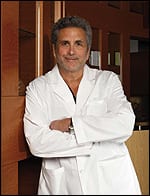 |
Your column “Circling the Wagons” (October 2008) is preposterously and outrageously off the mark. Your arguments are, essentially, a reiteration of the tired and stale old arguments that have been presented by the underqualified cosmetic surgical community for years. Aesthetic surgery is much more than a set of operative procedures or a grouping of technical exercises.
Plastic surgeons are thoroughly trained in both the arts and sciences of tissue handling, fundamental reconstructive principles, and wound-healing processes.
Those of us who are thoroughly trained in both reconstructive as well as cosmetic surgical principles and procedures are the true masters of aesthetic surgery. The lack of uniformity of training, credentials, and a true mastery of basic reconstructive principles leaves the “cosmetic surgeon” fundamentally flawed and vastly less qualified.
What is a “cosmetic surgeon”? By your own criteria, it is any willing physician with a medical license and a knife. If it were only so simple. The various cosmetic surgical academies, unrecognized boards, and foundationless associations continue to do the American public a grave and dangerous disservice.
Most plastic surgeons would agree that significant contributions have been made by physicians such as Jeffrey Klein, MD. I applauded Dr Klein when he first spoke at the Lipoplasty Society of North America Meeting in San Diego [in] 1994. His work was brilliant, and he has been justifiably lauded for it.
Nonetheless, it is Dr Klein and various other members of the cosmetic surgical community who will teach any willing physician how to perform these procedures in a few short days (for a few thousand dollars!) and then unleash these novice practitioners (bearing a “certificate” of training) upon the unknowing public.
You point to “studies” showing that plastic surgeons have a higher death rate than our cosmetic surgeon competitors? What you conspicuously fail to mention is the unambiguous fact that plastic surgeons take care of the sickest and the highest-risk patients as a matter of daily practice.
Cosmetic surgeons are unable to safely care for these higher-risk patients, who might require hospitalization. In fact, the vast majority of cosmetic surgeons are unable to obtain hospital privileges to care for these patients at all.
This is not a reflection of any conspiracy, but rather a demonstration of sanity, prudence, and good judgment on the part of hospital administrations, government regulatory agencies, and the general public. What matters here is patient safety.
Stop pandering to your constituency and perpetuating these big lies. We trained plastic and reconstructive surgeons care about patient safety, even as others do not.
—Steven Gitt, MD, FACS, Phoenix
I congratulate the editorial staff at PSP for the excellent article on Joseph P. Niamtu III, DMD, in the November 2008 issue. The enlightened recognize that the performance of quality cosmetic surgery is not within the domain of only one specialty. It is a historical fact that many surgical specialties (ENT, dermatology, oral and maxillofacial, general surgery, OB-GYN, etc) have contributed to the development and growth of cosmetic surgery.
I am currently completing a 1-year fellowship in cosmetic surgery after retiring from a gratifying 15 years as a busy board-certified cardiovascular surgeon. The last 9 years were spent as director of cardiovascular services and surgery in a Midwestern regional medical center.
I certainly have much to learn about cosmetic surgery, but hopefully the precision and compulsivity required for success in cardiovascular surgery will be an asset.
—Colin E. Bailey, MD, FACS, Osage Beach, Mo
Honestly, you should at least make an effort to print articles by trained, qualified surgeons with experience in the subject matter. As a board-certified plastic surgeon (American Board of Plastic Surgery), I all too frequently am challenged to repair the misdeeds of these “wannabe” plastic surgeons on unsuspecting people.
You should know, if you don’t know already, that the American Board of Cosmetic Surgery, the American Academy of Cosmetic Surgery, and the American Board of Facial Plastic Surgery are not recognized by the American Board of Medical Specialties (ABMS), which is the only board sanctioned to certify physician specialists. These credentials are easily purchased, not earned. This is why you will never find a real plastic surgeon, certified by the ABMS, who is a member of the above-mentioned “pseudo” specialty organizations.
— J. Michael Morrissey, MD, Dallas




